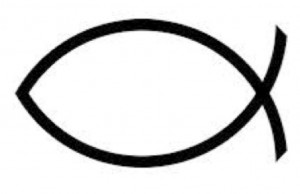I’ve always been fascinated by Luke 4:16-21. Jesus has achieved some fame as a prophet and he returns to his hometown of Nazareth. There he is invited to preach to the synagogue so he takes his place in front and chooses to read from Isaiah chapter 61. Have you ever wondered why, of all the passages Jesus could have preached from, he chose this one?
Jesus Rejected at Nazareth
Luke 4:16 And he came to Nazareth, where he had been brought up. And as was his custom, he went to the synagogue on the Sabbath day, and he stood up to read. 17 And the scroll of the prophet Isaiah was given to him. He unrolled the scroll and found the place where it was written,18 “The Spirit of the Lord is upon me,
because he has anointed me
to proclaim good news to the poor.
He has sent me to proclaim liberty to the captives
and recovering of sight to the blind,
to set at liberty those who are oppressed,
19 to proclaim the year of the Lord’s favor.”
20 And he rolled up the scroll and gave it back to the attendant and sat down. And the eyes of all in the synagogue were fixed on him. 21 And he began to say to them, “Today this Scripture has been fulfilled in your hearing.”
I’ll be preaching from this same text this coming Sunday at Canyon View but as I was translating the text from ancient Greek in preparation for my upcoming lesson, I came across the word thrauo, “oppressed.” This is the only place it is used in the New Testament and it literally means “to break into pieces.” Now that is a vivid image isn’t it?
Part of the ministry of Jesus (and part of our ministry as Christians) is to heal broken hearts! Unfortunately, all too often Christians are responsible for just the opposite. We can be too critical and we’re often swift to judge others.
Jesus often used humor to poke fun at this kind of hypocrisy. Do you remember when he talked about the Pharisee’s soup? “You blind guides, straining out a gnat and swallowing a camel!” (Matthew 23:24) I can just picture a camel doing the backstroke in a bowl of chicken soup while the poor Pharisee is chasing a gnat around the dish with his spoon.
Have you heard of the “Jesus Preaching Principle”? Jesus pointed sin out to saints but he pointed sinners to God. In other words, people whose lives are in pieces already know that. They don’t need people to point out their condition; they need people to point them to a loving God who can heal them. On the other hand, sometimes people who claim to know God need to have someone point out the camel in their soup.
“Ummm, waiter! What’s this camel doing in my soup?”
“I believe it’s the breast stroke sir…”



